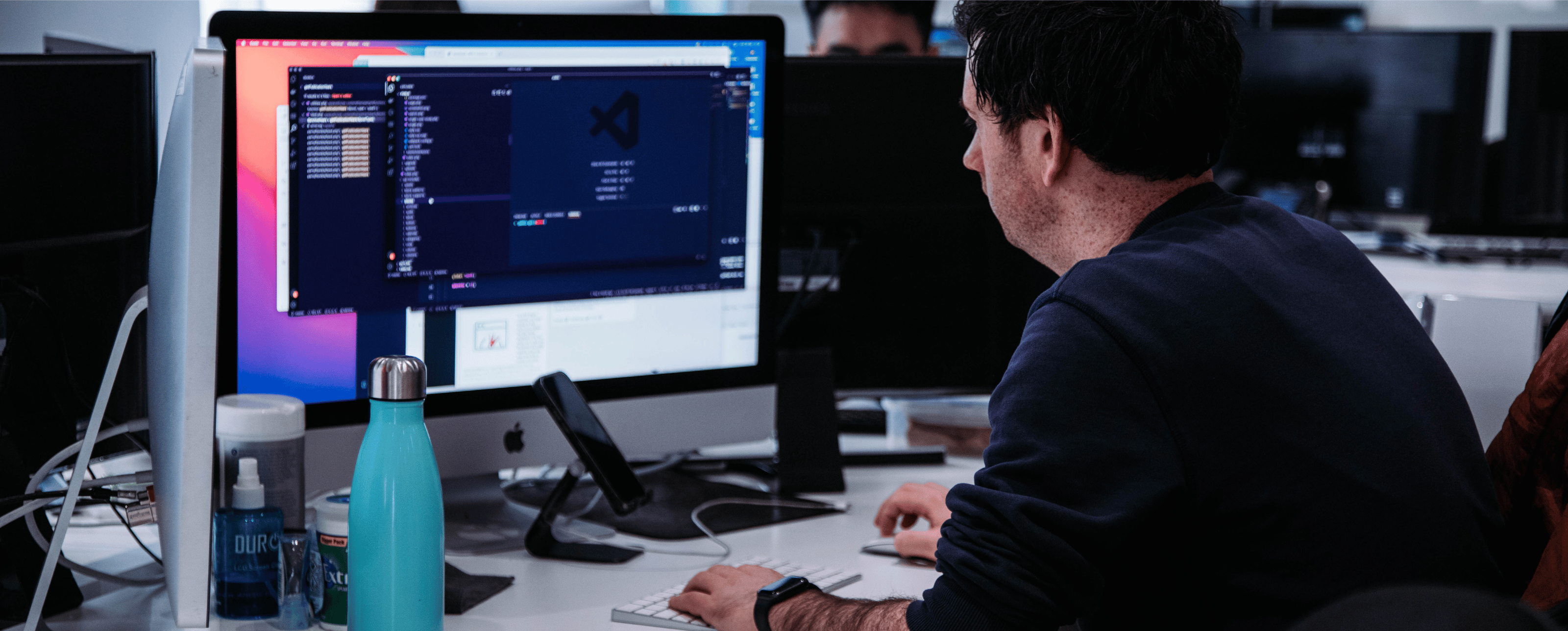Why Laravel is perfect for building robust and scalable applications
If you’re wondering why Laravel is perfect for building robust and scalable applications, we’re going to shed some light today. From syntax to database migration, we’ll break down why it’s a great idea to use Laravel for making applications (and updating them). As the first certified Laravel agency in the UK, we know a thing or two about its versatility and stability.
What is Laravel?
But first, a bit of background. Laravel is a free, open-source PHP web application framework. It follows the Model-View-Controller (MVC) architectural pattern for organising code. This elegant syntax helps keep the codebase organised, separating concerns and making it easier to maintain. Most devs find Laravel clean, expressive and easy to understand (and that makes development time shorter on its own). It’s also supported by hundreds of developers who are always making it simpler to add to and build on as new functionality is required.
Why is Laravel so good?
According to Laravel themselves, the platform “gives you robust tools for dependency injection, unit testing, queues, real-time events and more. Laravel is fine-tuned for building professional web applications and ready to handle enterprise workloads.” With a PC, PHP, Composer, Node and NPM, you’re ready to go.
Some of the key benefits of Laravel that make it so good for building robust and scalable applications are:
Composer
Laravel’s dependency manager for PHP; Composer, allows us to easily manage and install third-party packages and libraries. This plug-and-play feature facilitates code reusability and simplifies integration with other components. This means we can extend the functionality of your applications long after rollout.
Database
The built-in support for database migration and seeding is really straightforward. It allows us to define database schemas and seed them with sample data and use only simple PHP code. This streamlines database changes and ensures consistency across different environments. That’s an important factor for the scalability and maintainability of any application.
Eloquent
Laravel’s Object-Relational Mapping uses an advanced ActiveRecord implementation. That simplifies database interactions by allowing us to work with database records as objects in a full-stack implementation. Eloquent makes querying and manipulating database data simpler, improving our productivity.
Artisan
With Laravel’s Artisan command-line interface tool, we can automate repetitive tasks and scaffold boilerplate code. This applies to things like generating controllers, models, migrations and database seeders. With Laravel, the development workflow is easier and we can focus more time on building the core application features instead.
Security
There is built-in support for user authentication and authorisation. That’s useful for implementing registrations, logins, password reset tools and access control. These features are customisable and adjustable to the specific requirements of different applications. Plus, RedBerry explains, “Laravel puts a lot of emphasis on application safety. It provides a range of built-in features to protect against common security vulnerabilities, such as password hashing, CSRF protection, input sanitization and session protection. The framework uses Bcrypt to hash passwords, generates and validates CSRF tokens, uses PDO binding and escape tags to prevent SQL injection and XSS attacks, and offers several options to encrypt and manage user sessions securely.”
Community
Lastly, as we mentioned before, Laravel has an active community of developers who contribute to it by creating packages, tutorials and resources. The ecosystem includes:
- Cashier
- Dusk
- Forge
- Herd
- Inertia
- Jetstream
- Pennant
- Pint
- Pulse
- Sail
- Sanctum
- Spark
And much more! New items are being added regularly and there’s loads of support on the forums and in the documentation to make solving virtually any business requirement a cinch.
Curious about what we could make for your business on Laravel? Talk to us on LinkedIn, Twitter or via the website here.
